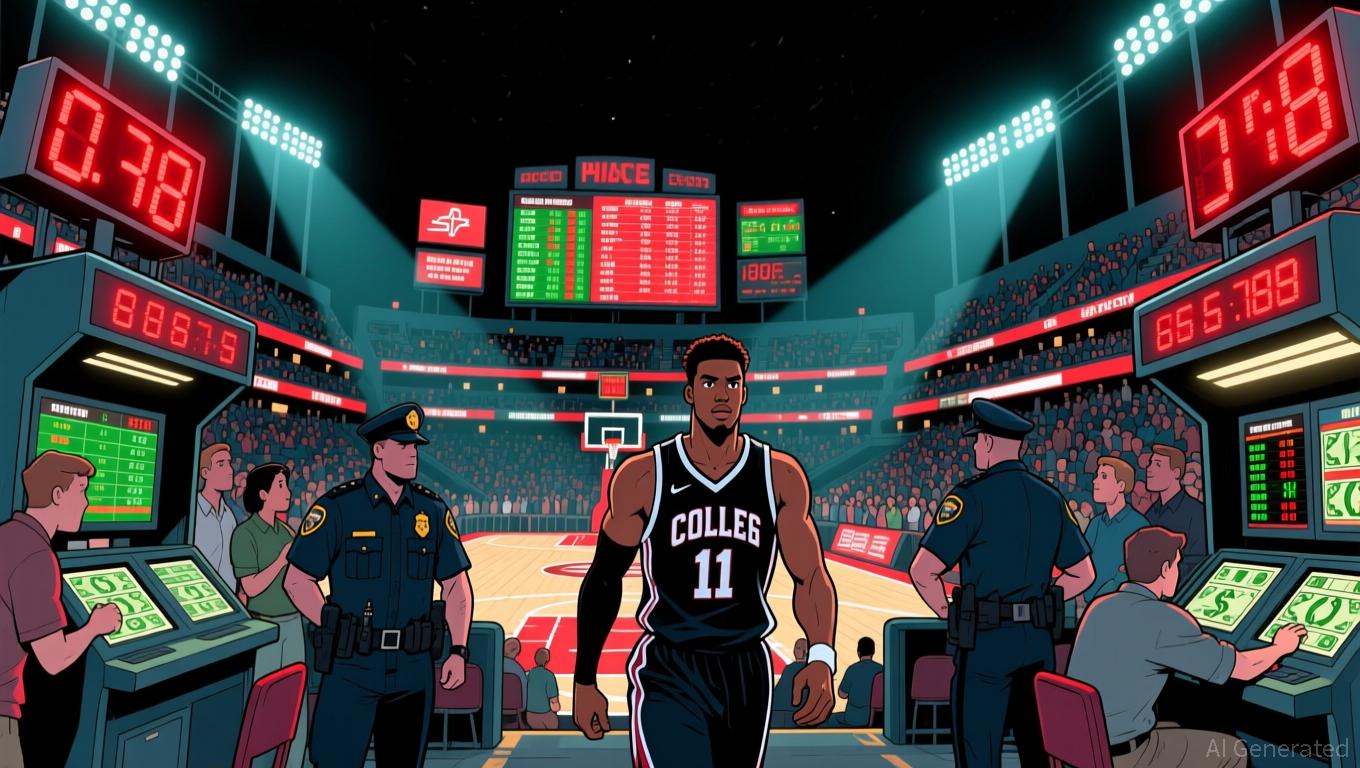As Sports Wagering Surges, NCAA Strengthens Prohibition to Protect Fair Play
- NCAA reverses pro sports betting rule amid gambling scandals, maintaining a ban on collegiate athletes and staff wagering. - High-profile arrests (e.g., NBA coach Billups) and NCAA investigations into betting violations prompted the decision. - Rule rescission succeeded due to <75% support threshold, with 2/3 Division I schools opposing the change. - Major leagues like MLB and NBA also restrict prop bets, reflecting shared concerns over integrity risks in gambling-adjacent sports. - Critics argue blanket
The National Collegiate Athletic Association (NCAA) has reversed a proposed rule that would have allowed college athletes and athletic department employees to wager on professional sports, a move prompted by a recent wave of gambling scandals affecting both college and pro sports. This decision, made following a procedural vote among Division I schools, upholds the existing prohibition on gambling for anyone involved in NCAA sports, highlighting increasing worries about preserving fair competition
This action comes in the wake of several high-profile arrests and investigations that have brought negative attention to sports betting. In late October, NBA coach Chauncey Billups and Miami Heat guard Terry Rozier were among those detained in federal crackdowns on suspected gambling operations. The NCAA also recently declared six men’s basketball players ineligible for violating betting rules and confirmed that former Temple University guard Hysier Miller had placed wagers on Owls games, including bets against his own team. These incidents, along with ongoing federal investigations, led the NCAA to stop the rule change, which was originally set to begin on Nov. 1.

The NCAA’s stance is consistent with broader measures taken by professional leagues to protect the integrity of their competitions. Major League Baseball, for example,
In recent years, the NCAA has stepped up its enforcement of sports betting violations, with at least a dozen new cases currently under investigation. The organization’s actions also reflect mounting pressure from conference officials, such as Southeastern Conference Commissioner Greg Sankey, who
Disclaimer: The content of this article solely reflects the author's opinion and does not represent the platform in any capacity. This article is not intended to serve as a reference for making investment decisions.
You may also like
Bret Taylor’s Sierra surpasses $100 million in annual recurring revenue in less than two years
Nvidia is earning substantial profits thanks to the surge in AI enthusiasm
